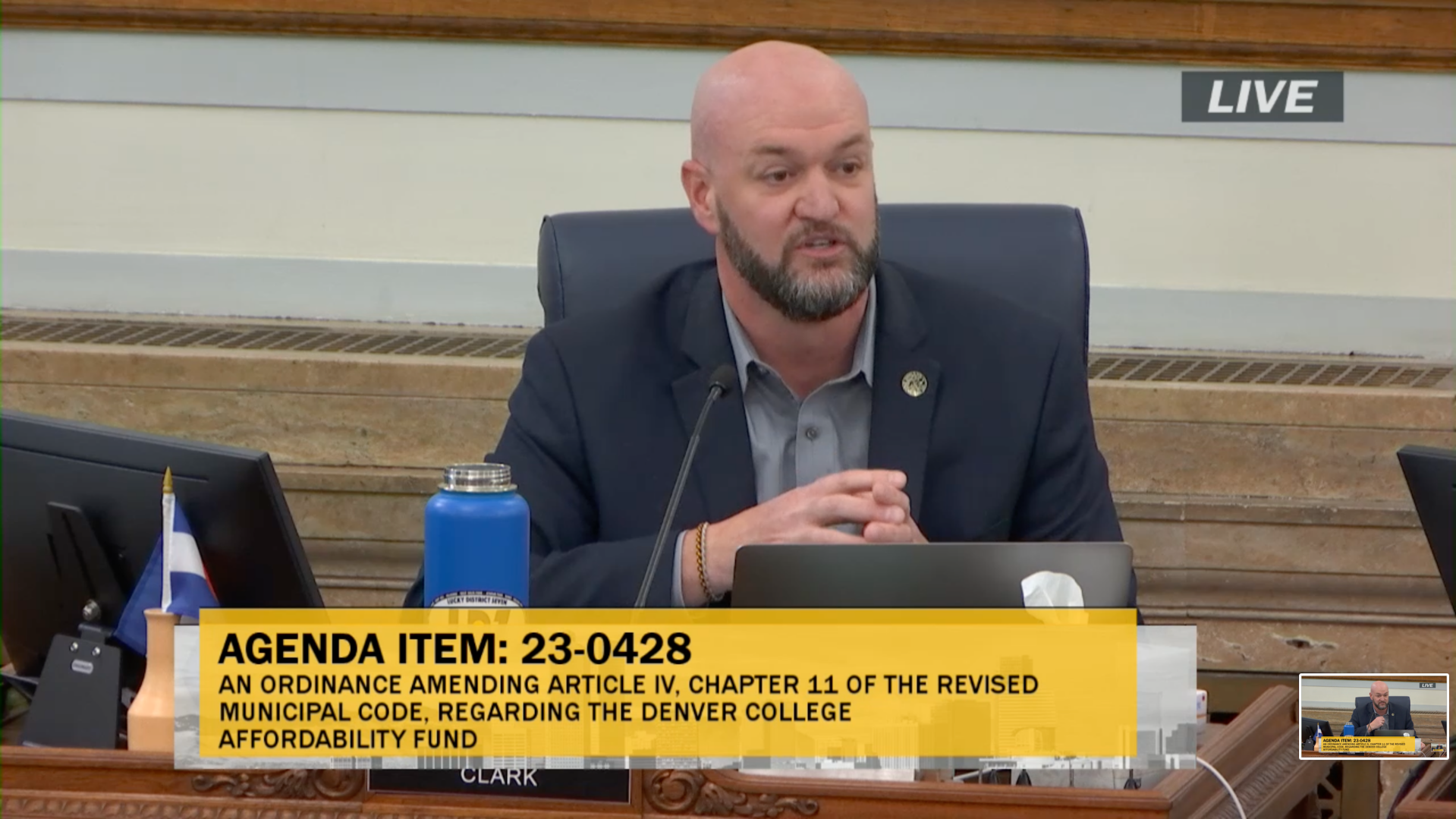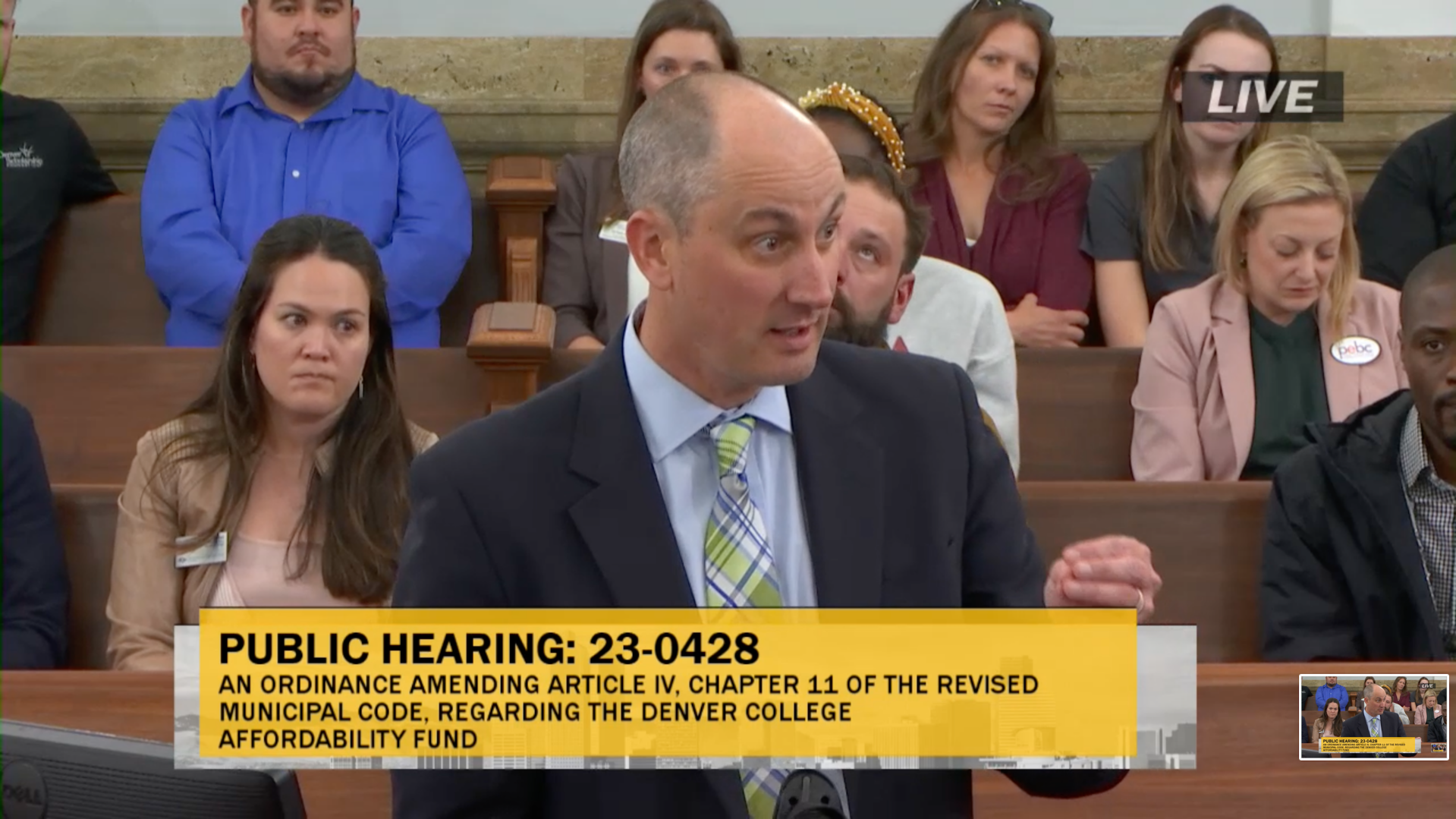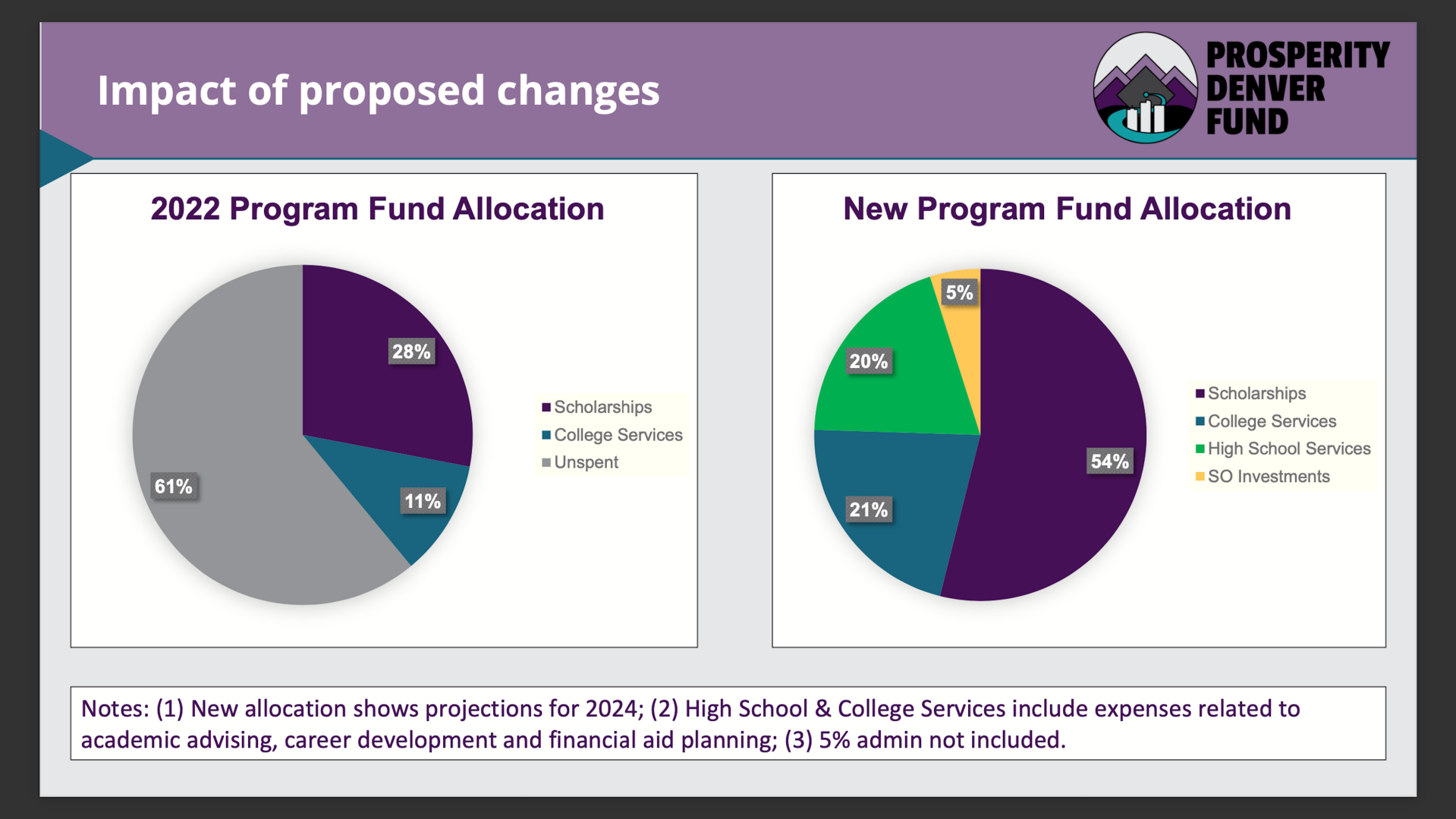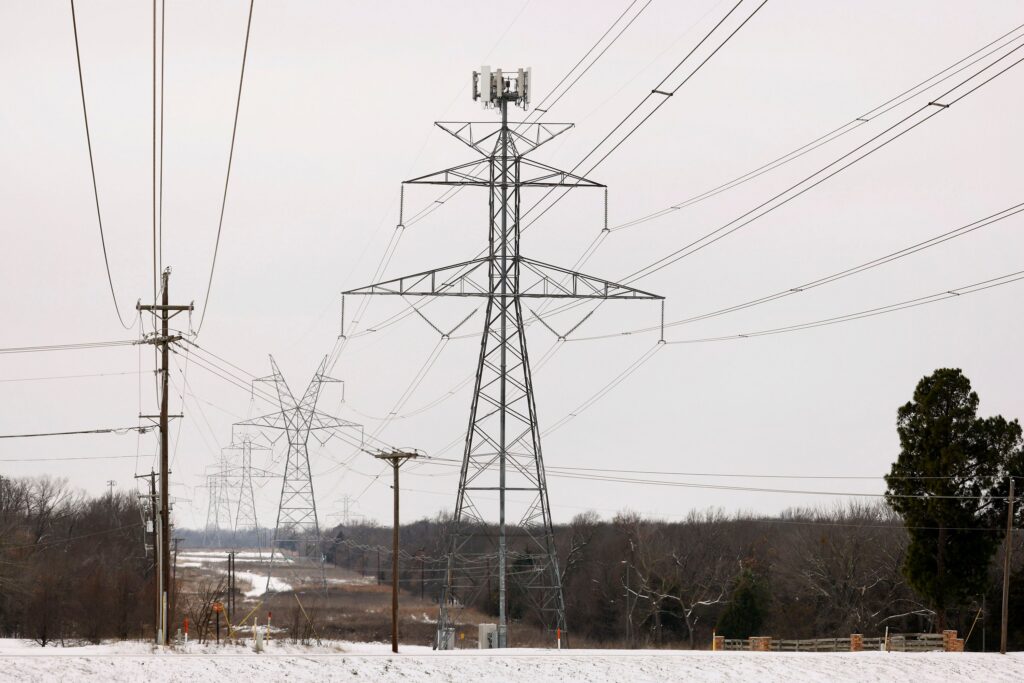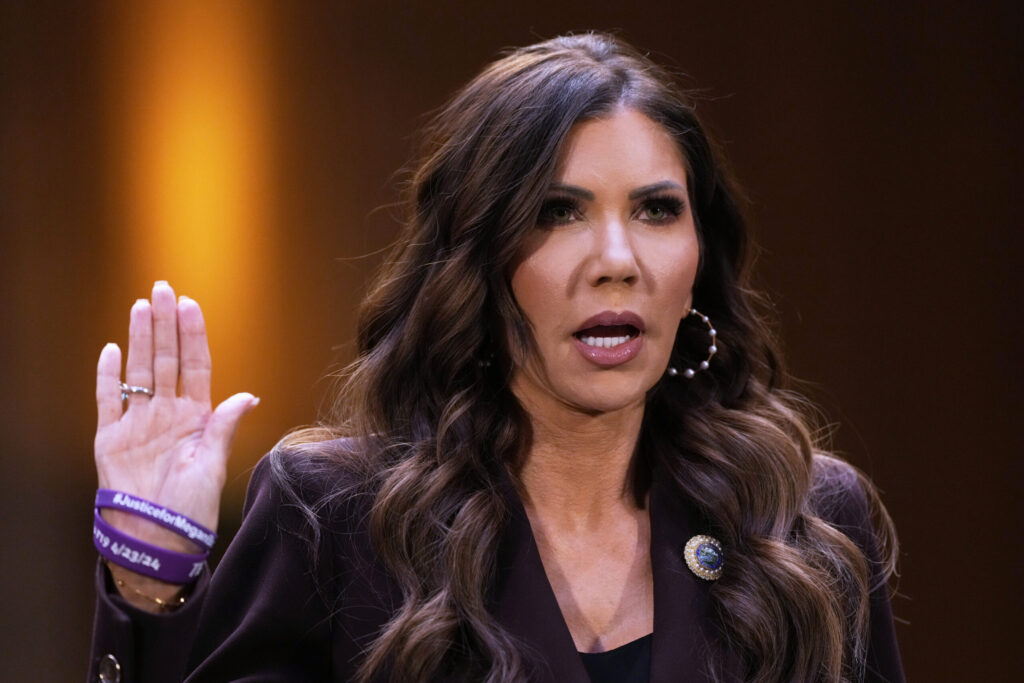Any DPS graduate can use Denver’s college affordability fund, regardless of residency status
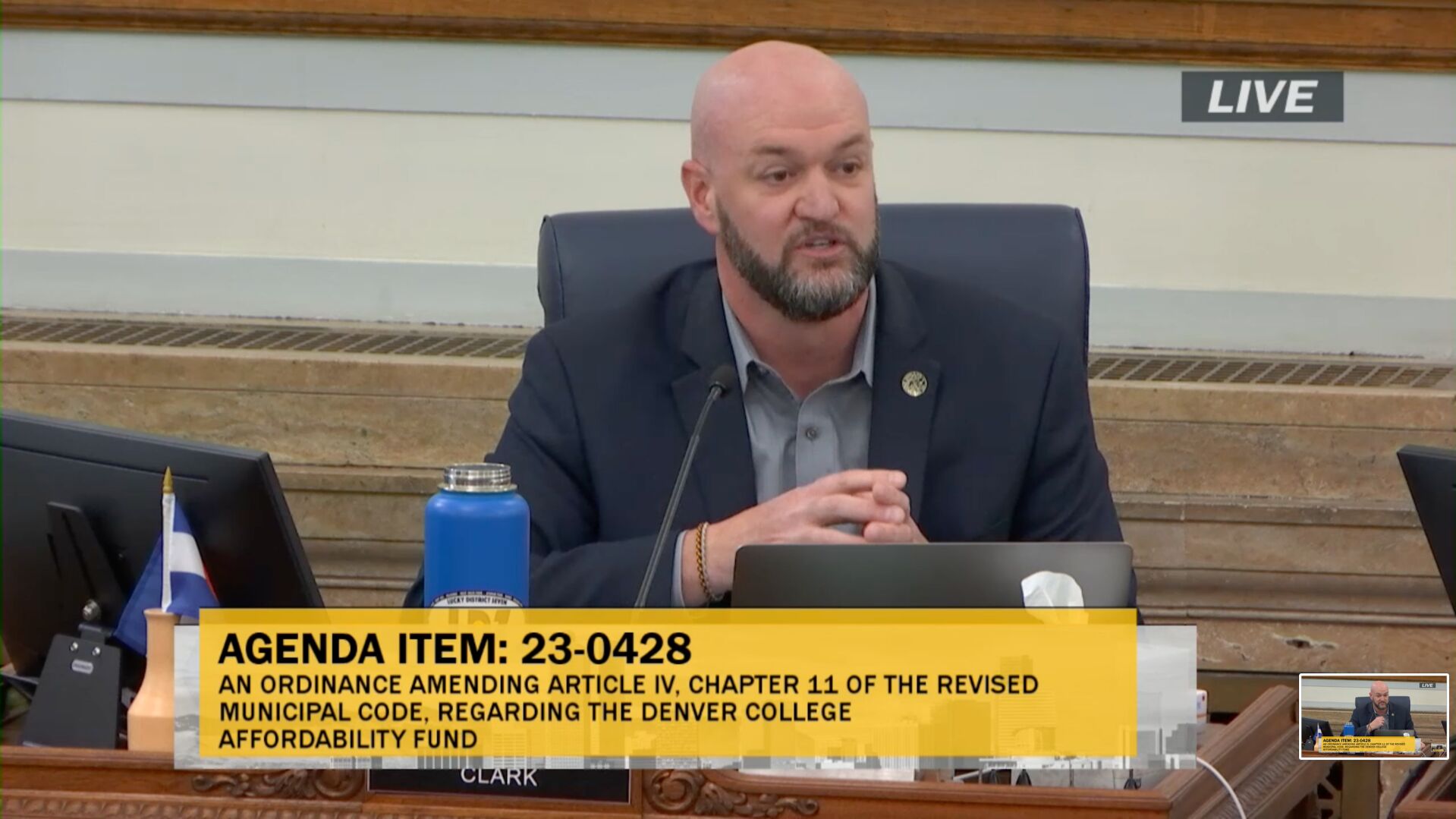
The Denver City Council expanded eligibility for the Prosperity Denver Fund in a 12-1 vote Monday evening after lengthy public comment and deliberation.
The new rules allow students from low-income families to participate in the fund, which has various means of lessening the financial burden of higher education, as long as they graduated from a Denver Public Schools high school.
Previously, students had to claim residency in Denver. But as prices rise and many are displaced from the city, councilmembers sought to relax eligibility requirements.
Though supportive of most changes, District 7 Councilman Jolon Clark specifically cited the residency requirements as a major issue for him.
Clark feared the adjusted language put the entire program at risk.
“If we vote yes on the proposal in front of us, we make it possible for a kid who lives in Aurora to get a scholarship to go to CSU in Fort Collins, get a job out of college in Fort Collins and never live in the city and county of Denver at all,” he said. “And our Denver tax would pay for that scholarship under this new program as long as they graduated from a DPS school but never lived in the city.”
Prosperity Denver Fund CEO Matt Jordan said this was the big question his staff grappled with, but felt residency requirements were “so far out of bounds” that they had to be changed. Jordan also noted only 7% of DPS students are from out of district, though he acknowledged that number is increasing.
In 2018, Denver voters approved a slight tax increase of 0.08%, amounting to just under $14 million per year, creating a source of money for the fund. The money may be used to fund scholarships and support services promoting completion of a degree.
The measure passed with about 10,000 more people voting in favor than against. It took effect in 2019.
A similar effort, Measure 2A, appeared on a November 2015 ballot, but failed by a margin of about 3,500 votes. 2018’s Ordinance 300 will end in 2030. It may be renewed at that point, but Denverites would have to vote on it.
Though she ultimately voted in favor of the amended ordinance, District 4 Councilwoman Kendra Black expressed concern about the legality.
“The ballot initiative says Denver residents… Voters voted for “Denver residents” and you don’t have to be a resident now,” she said. “That causes me some pause, everything else is fine.”
Jordan said later the changes made to the ordinance are still well within the scope of what Denverites approved previously.
The lone vote against came from District 2 Councilman Kevin Flynn. He mentioned what he called “scope creep,” and said the City Attorney’s Office called it “scope gallup” when he called them. On average, the program only distributes $5 million. Currently the fund balance is $30 million, giving Flynn some ideas: The city could expand the scope or look at reducing the tax rate of 0.08%.
Flynn wasn’t entirely critical of the measure, and appreciated many of the changes.
“I like especially the support for certificate programs because not everyone will go to a four-year college, and the apprenticeship programs because not everybody’s going to work with their minds alone,” he said.
